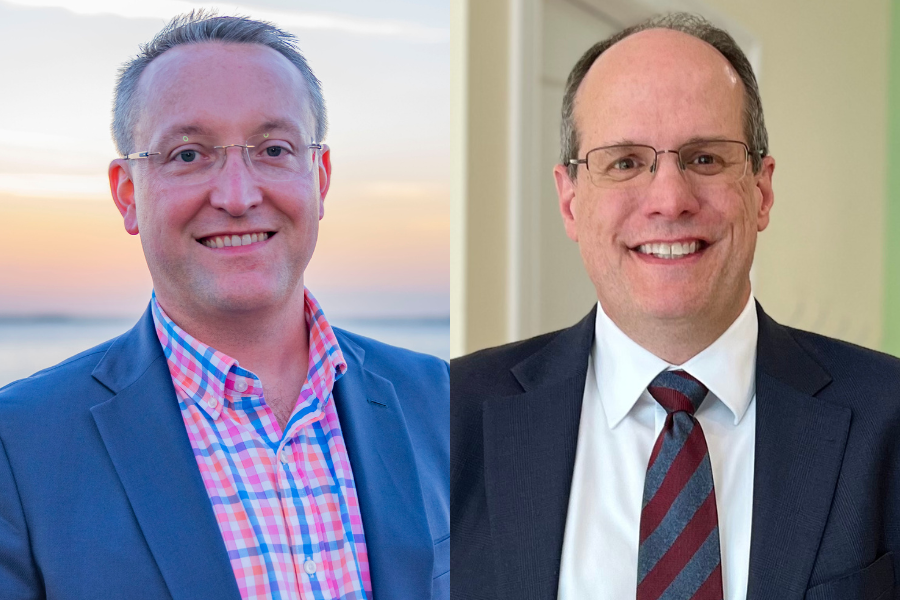

Ringing in a new year comes with a lot of planning, preparation – and dread.
2023 was no doubt a time of evolution for the financial planning industry, with advisors increasingly seeking AI-aided autonomy to help increase assets under management. InvestmentNews spoke with several advisors who said finding the right new clients was key to this growth.
"That's on everybody's mind,” said Andrew J. Evans, CEO and founder of Rossby Financial, an RIA platform. “How do I grow that AUM, pull in my clients and really remain a profitable business?”
Evans said to have any sort of growth, advisors will have to take the reins and compete against others. “You have to make sure you grow that AUM. And to grow that AUM, you really want to do it with those clients.”
Stephen Norton, president at Saybrook Wealth Group, who built his business by helping people he says were underserved, cited concerns related to scaling his practice.
“I've grown the practice pretty successfully but I'm realizing that I need more and more help finding the right people,” Norton said. “[I want to be] able to keep up the service levels that my clients have grown to expect from me. I always prided myself as being the guy who would talk to the client that had a couple of hundred thousand and was being ignored in other places.”
Norton added that to help with scale, he is fully embracing technology, moving toward a CRM that will help the business become more efficient.
Colin Day, financial advisor at Correct Capital Wealth Management, says the concerns heading into 2024 sound very similar to last year.
“Many folks were forecasting recession sometime midyear in 2023, which never really came to fruition and now we kind of see ourselves in the same boat 12 months later,” Day said.
“When it comes to positioning of money, when we think about the investment risk that we're taking with portfolios, the concerns are still the same year later,” he added. “It’s how do we position ourselves to the future to make sure that we made the right decision? Even if the market does have its way with our accounts for a period of time, we are still preserving ourselves for long-term growth.”
Other top concerns that are on advisors’ minds, Sean Lovinson, certified financial planner at Purpose Built Financial Services, wrote in an email, include market volatility, inflation and interest-rate changes.
Moving forward, advisors will have to get more comfortable with using artificial intelligence, keeping in mind there still needs to be a human on the other end of the line.
Evans said the wealth management industry could adopt fractional services to help expand capacity and really make their businesses flourish.
“Lyft, Uber, Airbnb, DoorDash: These are all fractional services that could very easily be adopted here in our industry to clean up database, build your workflows, help you with some marketing pieces – just quick hits – to just get down the road and get it done,” he said.

Rajesh Markan earlier this year pleaded guilty to one count of criminal fraud related to his sale of fake investments to 10 clients totaling $2.9 million.

From building trust to steering through emotions and responding to client challenges, new advisors need human skills to shape the future of the advice industry.

"The outcome is correct, but it's disappointing that FINRA had ample opportunity to investigate the merits of clients' allegations in these claims, including the testimony in the three investor arbitrations with hearings," Jeff Erez, a plaintiff's attorney representing a large portion of the Stifel clients, said.

Chair also praised the passage of stablecoin legislation this week.

Maridea Wealth Management's deal in Chicago, Illinois is its first after securing a strategic investment in April.
Orion's Tom Wilson on delivering coordinated, high-touch service in a world where returns alone no longer set you apart.
Barely a decade old, registered index-linked annuities have quickly surged in popularity, thanks to their unique blend of protection and growth potential—an appealing option for investors looking to chart a steadier course through today's choppy market waters, says Myles Lambert, Brighthouse Financial.
